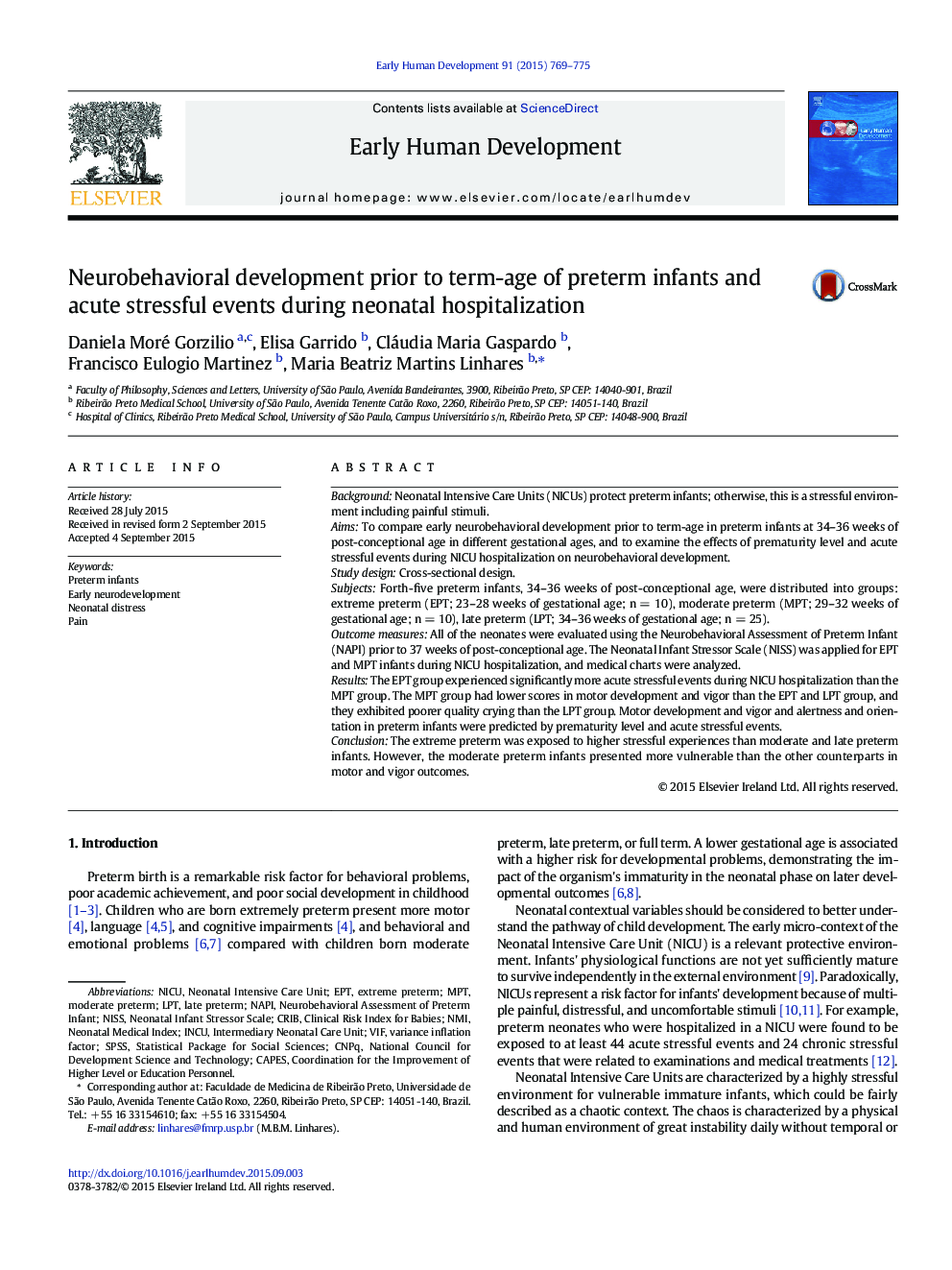| کد مقاله | کد نشریه | سال انتشار | مقاله انگلیسی | نسخه تمام متن |
|---|---|---|---|---|
| 3916714 | 1252069 | 2015 | 7 صفحه PDF | دانلود رایگان |
• The early neurodevelopment in preterm infants prior to reaching term age at 34–36 weeks of post-conceptional age is similar independently of gestational age status.
• The extreme preterm experienced significantly more acute stressful events during NICU hospitalization than the moderate preterm.
• Motor development and vigor and alertness and orientation in preterm infants were predicted by prematurity level and acute stressful events.
BackgroundNeonatal Intensive Care Units (NICUs) protect preterm infants; otherwise, this is a stressful environment including painful stimuli.AimsTo compare early neurobehavioral development prior to term-age in preterm infants at 34–36 weeks of post-conceptional age in different gestational ages, and to examine the effects of prematurity level and acute stressful events during NICU hospitalization on neurobehavioral development.Study designCross-sectional design.SubjectsForth-five preterm infants, 34–36 weeks of post-conceptional age, were distributed into groups: extreme preterm (EPT; 23–28 weeks of gestational age; n = 10), moderate preterm (MPT; 29–32 weeks of gestational age; n = 10), late preterm (LPT; 34–36 weeks of gestational age; n = 25).Outcome measuresAll of the neonates were evaluated using the Neurobehavioral Assessment of Preterm Infant (NAPI) prior to 37 weeks of post-conceptional age. The Neonatal Infant Stressor Scale (NISS) was applied for EPT and MPT infants during NICU hospitalization, and medical charts were analyzed.ResultsThe EPT group experienced significantly more acute stressful events during NICU hospitalization than the MPT group. The MPT group had lower scores in motor development and vigor than the EPT and LPT group, and they exhibited poorer quality crying than the LPT group. Motor development and vigor and alertness and orientation in preterm infants were predicted by prematurity level and acute stressful events.ConclusionThe extreme preterm was exposed to higher stressful experiences than moderate and late preterm infants. However, the moderate preterm infants presented more vulnerable than the other counterparts in motor and vigor outcomes.
Journal: Early Human Development - Volume 91, Issue 12, December 2015, Pages 769–775
